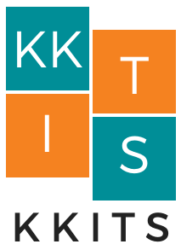Accrual accounting records revenue and expenses when they are incurred, regardless of cash flow, while cash basis accounting only records transactions when money changes hands. Since construction jobs are invoiced on a regular basis, it’s important to ensure that all invoices are tracked and accounted for. It’s not uncommon for firms to have multiple projects occurring at the same time, so tracking invoices ensures that nothing gets lost and falls through the cracks. Accurate job cost accounting also allows you to analyze cash flow to ensure your project has enough funds to keep production moving forward. Construction bookkeeping is also based on production costs, which can vary since no two projects are the same.
Industry Focus
Tools like Planyard automatically update budgets with real-time data, helping project managers identify discrepancies early and adjust. Industry workshops offer insights into the latest real estate construction bookkeeping accounting practices. For one, payroll for construction is more complex, and involves much more than agreeing on a flat rate for every project. Projects like government-funded projects require you to pay a prevailing wage, a minimum hourly rate that’s typically higher and determined by each state’s Department of Labor. Paying any lower than what’s legally mandated can result in penalties—and even jail time.
- Construction financial software refers to specialised software solutions designed to address the unique financial management needs of construction companies.
- Plus, you’ll have all the tools you need to stay on top of your construction accounting and make smarter financial decisions.
- Unlike direct costs, which are tied to specific cost codes, indirect costs are typically allocated to broader accounts.
- For example, a lot of business owners put wages in their cost of goods sold, but don’t include payroll tax, health insurance, and other benefits with that.
- Direct costs are typically assigned to specific cost codes within the accounting system, which allows for detailed tracking and management of these expenses.
- For the ledger system to be effective, employees involved in record-keeping and financial management must be well-trained.
- Today, many construction companies rely on software tools for maintaining ledgers.
Timely Invoicing
We looked at a total of 22 different metrics across five separate categories to reach our conclusion. Here are some of the categories we used to rank the providers that made the top of the list. The Advanced plan adds the ability to create accurate estimates and provide full financial transparency. The Complete plan builds on the first two plans by centralizing complex processes and allowing businesses to have complete control of projects from beginning to end. At the beginning of the article, I mentioned that construction companies should focus on improving their gross profit before worrying about overhead costs.
Set Aside Money for Taxes:
This means that you recognize income in the accounting period when it’s collected, and not at the time of sale. The more projects your construction company manages and the more workers you contract, the more important it is to have your accounts in order. You can use that bank statement to reconcile your transactions to make sure they match up with your own accounting system, invoices, payments, etc. Regular businesses typically offer 1-5 different types of products or services, whereas construction businesses offer a wide range of services.
Cash basis method
Then, keep your overhead at 10-15% of your revenue, and you’ll be at a healthy net profit margin. The business intelligence and analytics features in Sage 100 Contractor grant you access to improved visibility across your business, keeping your teams connected in real-time. Included with these reporting capabilities are drill-down functions that let you investigate anomalies within transactions and make it easier to reconcile issues. However, with the help of specialists, technology, and basic knowledge, companies can make the most out of it. Hire a construction business accounting and bookkeeping service provider today to free yourself from the dreaded number work.
Accounting Basics for Contractors and Construction Businesses
For instance, I wouldn’t expect a roofer and a general contractor to have the same GP goals. If you can hit that 20-50% range, you should be looking at a net profit margin of 7-10% (minimum!). Since construction companies work on individual projects simultaneously, the financial accounting must focus on the money spent https://blackstarnews.com/detailed-guide-for-the-importance-of-construction-bookkeeping-for-streamlining-business-operations/ and incoming from a particular project. It will help them track the profitability or loss from that project and help them achieve their desired margins.
- Any bookkeeping solution you choose should have these core features at a minimum.
- The fluctuating cost and availability of production require you to plan and track costs more attentively.
- This software aids in simultaneous tracking of real costs while also continuing to find ways to reduce costs in the vendor procurement process.
- In a deck construction, the wall ledger is often bolted or screwed into the exterior of the house.
- Topic 606 is an accounting standard update (ASU) that requires public companies to disclose information related to their revenue recognition practices.
- If you truly want to master your construction accounting and avoid costly mishaps, you may want to look into the best construction accounting software.
